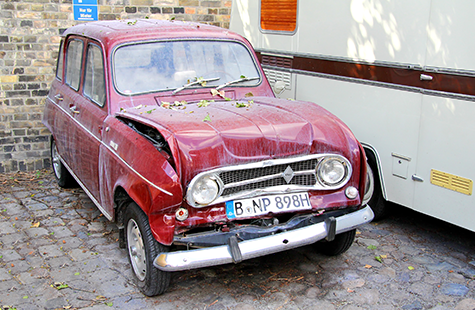A German insurance company offers an interesting option in liability insurance. Die Bayerische, an insurer based in Munich, Germany, now offers insurance to individuals through an online app that covers injuries suffered while drunk.
In the United Kingdom, three sisters obtained insurance in the event that one produced a virgin birth due to the second coming of Jesus. The insurer eventually withdrew the policy, which begs the question of whether the sisters became “ineligible” for the coverage at some point?
The U.S. has its share of curious coverage options, including UFO abduction and UFO crash landing insurance.
While these oddball policies may be funny, there are serious differences in insurance around the world. Just as every country and culture has its own food, music, attire, religion and politics, insurance policies and coverage also differ greatly around the world.
Healthcare And England’s NHS
Until the advent of the Affordable Care Act (ACA), the U.S. was the only industrialized nation not providing some type of universal healthcare. In the U.S., people fear becoming more “socialist,” where, in reality, we already have socialized programs: social security and Medicaid.
Americans generally view the British Health System with distaste. Curiously, according to the Columbia Journalism Review, many in the U.K. view the American system with as much distaste. Both sides of the pond fear the same things about the other’s system:
- Rising healthcare costs
- Rationing of services
- Loss of access to care
Since 1948, the NHS has provided healthcare to everyone, regardless of the ability to pay. It is a true, single-payer socialized medicine system. Medical appointments are free, and the system is quite popular with the people there. It appears to function quite well in some areas. As of 2009:
- Britain outranked the U.S. in life expectancy and lower infant mortality rates.
- British hospitals could accommodate more acute-care cases per capita.
- The U.K. had a lower death rate due to surgical or medical mistakes.
- Britain spent about $2,500 per person on health care, whereas the U.S. spends about $6,000 per person.
One area the U.K. lags in is survivability of cancer patients.
The ACA and Private Insurance
In the U.S., healthcare insurance was always (and still is for the most part) the domain of the private sector. Not everyone had access to insurance, unlike England, where healthcare coverage is a “right.” While the ACA seems to follow the U.K. model, it actually differs significantly from European socialized health care programs:
- Most insurance will still come from the private sector.
- Many hospitals are privately owned.
- It does not give access to state-provided healthcare to everyone.
- The government is not the single payer for coverage.
Cultures, Death and Life Insurance
It sounds a bit macabre, but the single event triggering life insurance payouts is death. Cultural views on death play a big part in buying life insurance.
In Japan, the reasons for obtaining life insurance are about:
- Protecting the estate against death tax payments
- Paying for funeral costs
- Accumulating money to pay for education, marriages and such
In 1992, when an insurance company offered the first true life insurance product in mainland China, things went awry. A Yale University publication relates that the motivations presented to potential insureds, such as “love” and “responsibility” failed miserably, resulting in “contempt, suspicion, and even hostility” because discussing death, in that culture, was off-limits.
Discussing death is a taboo in many cultures, out of fear of bad luck or a belief that it shows disrespect.
- Some Filipinos fear telling a loved one they are dying causes them to lose hope.
- Some Southeast Asian cultures keep impending death from an ill family member due to the belief that doing so accelerates death and is also disrespectful.
- Some Somalis view telling a patient of a terminal illness as uncaring.
- Some Muslims require the involvement of a religious leader in discussing end-of-life decisions.
Not surprisingly, life insurance rates in the Philippines are quite low compared to other countries with advanced economies. In Cambodia, life insurance coverage arose only in the year 2000.
Homeowners’ Insurance Across the Globe
In Germany, obtaining insurance includes taking out Haftpflichtversicherung, or personal liability insurance, which covers:
- Liability for injuries or damages to third parties and/or their property due to the negligence of the policyholder, a family member and perhaps a pet
- Liability due to bicycles (but NOT cars)
Another common German insurance coverage is Hausratversicherung, or household contents insurance for protection in cases of fires, burglaries, vandalism, and weather events.
Japanese home insurance also provides insurance against losses and damages to a home, includes third-party medical coverage and damage due to weather events. However, earthquake insurance is purchased separately.
Many regions, including certain portions of the Middle East and Africa, have few home insurance providers; in fact, there are few types of any insurance available in those regions on a large scale.
Auto Insurance Abroad – The Liability Question
Most developed nations require car owners to have insurance on their vehicles covering injury and damages, although South Africa and the Russian Federation are rather lax about this.
Some auto insurance variations between countries are similar to differences between states in the U.S., specifically no-fault insurance. In its purest form, no-fault auto insurance means that everyone (even the driver causing the accident) involved in an auto accident receives compensation for injuries (up to a certain limit). Canada, Australia, Israel and New Zealand all have no-fault insurance provisions.
The Roots of Differences
Different cultures and their laws influence insurance practices. In terms of automobile insurance, some countries have hardline anti-DUI statutes but also provide great public transportation networks, both affecting insurance practices. The same is true for cultures with established and accepted life insurance industries: The way the populace views matters of death and disaster influences how they anticipate both. We are all products of our culture, from birth to death, and all the insurable activities in between.
